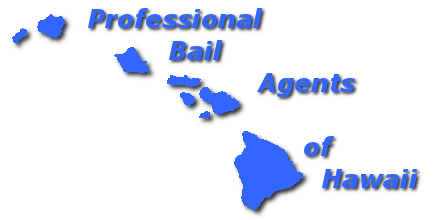State v. Williams (ICA September 22, 2014)
Background. Fred Williams was in Cartwright Park in Honolulu after closing time. The signs around the park posted that no one can be there between the hours of 10:00 p.m. and 5:00 a.m. The police found him and cited him for being in the park during the off-hours. In the process, they discovered that an outstanding bench warrant (a judge ordered a warrant for his arrest for failing to show up to court on an unrelated matter) was out for him. He was subsequently arrested for that. After being placed in handcuffs, the police discovered a glass pipe, two lighters, and small baggies on his person. This discovery led to prosecuting him for possession of drugs and drug paraphernalia. The warrant, however, expressly and explicitly stated that it could not be executed between the hours of 10:00 p.m. and 7:00 a.m. “on premises not open to the public.”
Williams moved to suppress on the grounds that the warrant was improperly executed. The circuit court granted the motion. The prosecution appealed.
The Limits of Executing Warrants. Warrants shall “contain a prohibition against execution of the warrant between 10:00 p.m. and 7:00 a.m. on premises not open to the public, unless a judge of the district or circuit court permits execution during those hours in writing on the warrant[.]” Hawaii Rules of Penal Procedure (HRPP) Rule 9(b). The Williams warrant contained this prohibition. And yet the warrant was executed on a premises that was “not open to the public”—Cartwright Park after dark.
Court rules are interpreted like statutes. Molinar v. Schweizer, 95 Hawaii 331, 334-35, 22 P.3d 978, 981-82 (2001). When “the terms of a statute are plain, unambiguous and explicit, we are not liberty to look beyond that language for a different meaning.” State v. Haugen, 104 Hawaii 71, 75, 85 P.3d 178, 182 (2004). But this isn’t always the case. According to the ICA, when a literal construction leads to “an absurd and unjust result,” id., the court can resort to the legislative history to discern the intent behind the language.
“Not Open to the Public” Means Private and Places that the Public can go to. The ICA zeroed in on the part of the rule that forbid the police from executing warrants in places at night that were “not open to the public.” The Judicial Council of Hawaii’s Committee on Revision of the Rules of Criminal Procedure came up with these words in the 1970s. Back then, the drafters used the words “not open to the public” instead of “private” in order to avoid the technical and difficult questions related to title.
The ICA agreed with the prosecution that a literal reading of the prohibition lead to an absurd and illogical result. It concluded that limiting the execution of warrants “on public property only to those hours the property is technically ‘open’ is to make the exception a nullity.”
No Need to Fear Nighttime Warrant Executions Here. Warrants are normally not allowed to be executed at night because there is a “greater expectation of privacy that individuals possess in their homes at night” and a nighttime search creates a “heightened safety risk since people may tend to overreact to an entry by force in the dead of night[.]” State v. Richardson, 80 Hawaii 1, 7, 904 P.2d 886, 892 (1995). This concern, according to the ICA, is absent when the warrant is executed on public property.
And so the ICA vacated the suppression order and remanded the case back to the circuit court for further proceedings.
Rule 9 and the Homeless Hypothetical. The ICA appears to have held Rule 9’s “prohibition against execution of the warrant between 10:00 p.m. and 7:00 a.m. on premises not open to the public” does not prohibit the police from executing a warrant in a public park during off-hours. The details surrounding Williams and Cartwright Park in this opinion are few and far between. Perhaps Williams was standing around and the police approached him for being in the park after dark. That seems to fit well with the ICA’s interpretation of Rule 9.
But what if this wasn’t Cartwright Park? What if this was Aala Park and what if Williams was living in a tent? Or even under a shopping cart? Would the “greater expectation of privacy” still be absent? According to the ICA, the answer seems to be yes. The ICA held as a matter of law that the police may execute a warrant in the middle of the night so long as the person is on public property—even if you’re in a tent on that public property. That strongly suggests that the homeless do not have an expectation of privacy. Now, we will have to wait for such a case to come before the appellate courts to determine that much more difficult question.

